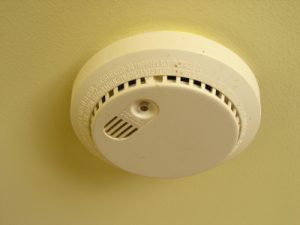
Smoke alarms save lives and are inexpensive life insurance. They are an early warning device designed to alert people to smoke or fire that might otherwise go undetected until it’s too late to escape the house. Having them is simply not enough. They need to be in working condition to do their job. Test smoke alarms monthly. Most smoke alarms are equipped with a “test” button which sounds the alarm when depressed.
Develop and practice a home fire escape plan. We all remember fire drills at school, and it’s important to practice the same skills at home too. Draw up an escape plan and make sure everyone knows the route. Practice the plan more than once – especially as children grow – so the first practice is not on the night of a fire!
If your home does not have a smoke alarm or if you have questions about your smoke alarms, we can help. Please contact the Fire Hall at 360-945-3473 for more information. Below you will find helpful guidelines for home smoke detectors.
Have Battery Backup for Hard Wired Smoke Detectors
If your home has smoke detectors wired into the house’s electrical system, they should also be tested monthly. Because you’ll still need a working smoke detector when the power is out, your house should have battery-operated units as well.
Change The Batteries
Change the batteries in your smoke detectors at least once a year. Choose a date that is easy to remember, such as the day you change your clocks back in the Fall. And, remember that the entire smoke detector must be replaced after 10 years.
Dust Your Detector
Just as you can’t smell when your nose is plugged, the smoke detector can’t do its job when clogged with dust particles. Vacuum the face of your smoke detector at least once a year.
